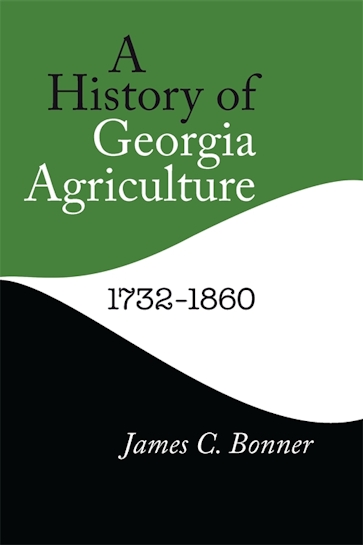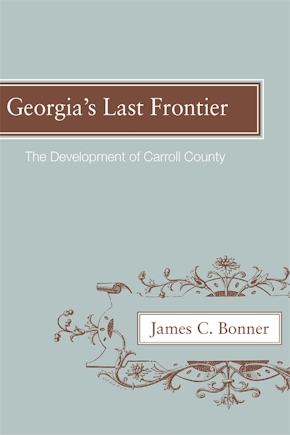A History of Georgia Agriculture, 1732–1860
Title Details
Pages: 256
Trim size: 6.000in x 9.000in
Formats
Paperback
Pub Date: 09/01/2009
ISBN: 9-780-8203-3500-1
List Price: $34.95
Related Subjects
HISTORY / United States / State & Local / South (AL, AR, FL, GA, KY, LA, MS, NC, SC, TN, VA, WV)
Other Links of Interest
• Learn more about Georgia agriculture at the New Georgia Encyclopedia
A History of Georgia Agriculture, 1732–1860
Skip to
- Description
- Reviews
Published in 1964, A History of Georgia Agriculture describes the early land and labor systems in the state. Agriculture came to Georgia with the first settlers and was largely directed toward the economic self-sufficiency of the British Empire. James C. Bonner's portrayal of the colonial cattle industry is prescient of the later open-range West. He also clearly shows how shortages of horses and implements, poor plowing techniques, and a lack of skill in tool mechanics spawned the cotton-slaves-mules trilogy of antebellum agriculture, which in turn led to land exhaustion and eventual emigration.
By the 1850s the general southern desire for economic independence promoted diversification and such scientific farming techniques as crop rotation, contour plowing, and fertilization. Planting of pasture forage to improve livestock and hold soil was advocated and the teaching of agriculture in public schools was promoted. Contemporary descriptions of individual farms and plantations are interspersed to give a picture of day to day farming. Bonner presents a picture of the average Southern farmer of 1850 which is neither that of a landless hireling nor of the traditional planter, but of a practical man trying to make a living.
Based upon a thorough knowledge of the sources interestingly interspersed with quotations by contemporaries, Bonner's work is a significant contribution to the history of the antebellum period.
—Cornelius O. Cathey, American Historical Review
Bonner skillfully places the Georgia experience in the mainstream of American history. His well-organized, readable account includes selected details that illuminate points which textbooks in American history (including economic history texts) often present without sufficient explanatory or background information to enable either students or instructors really to understand the facts.
—Fred W. Kohlmeyer, Technology and Culture



